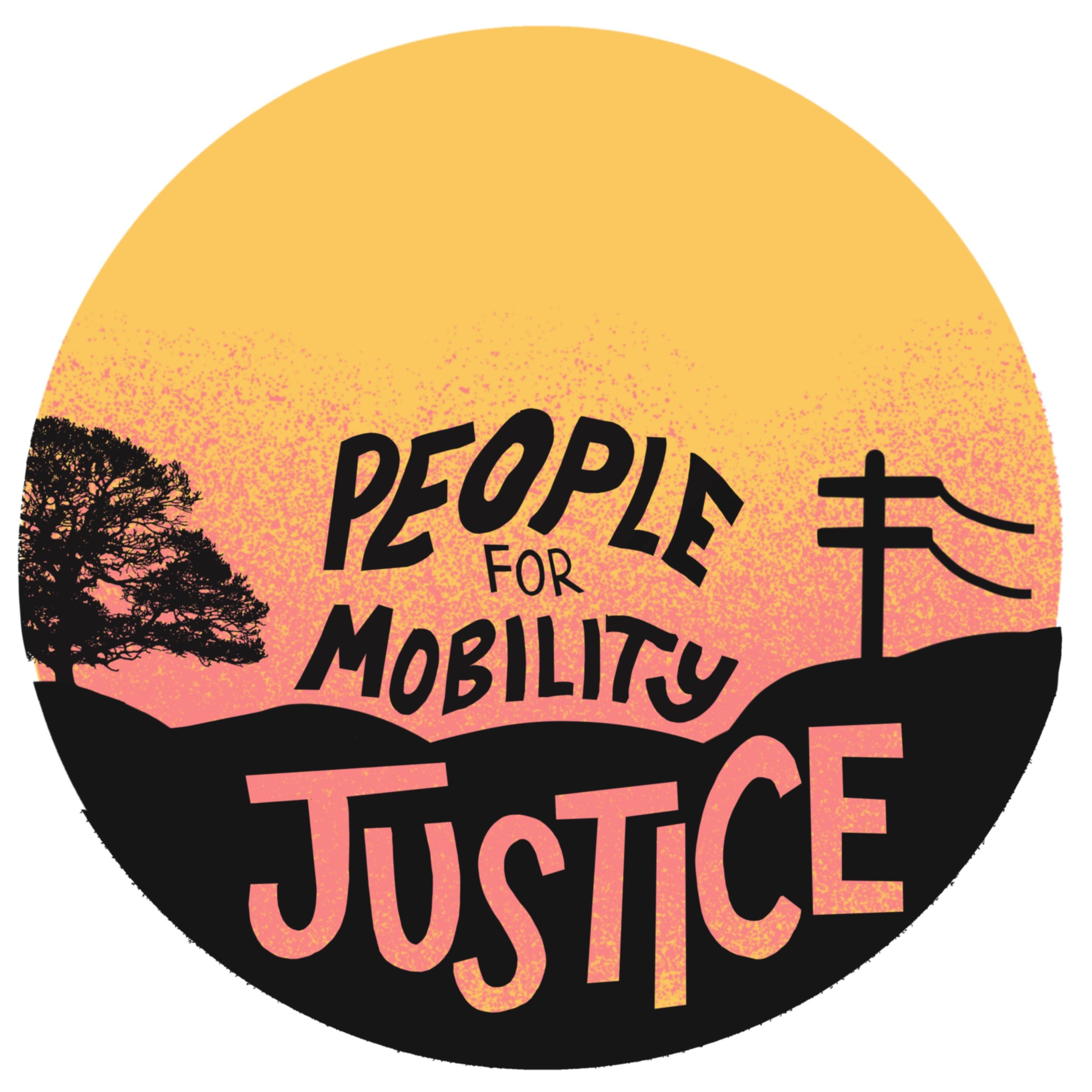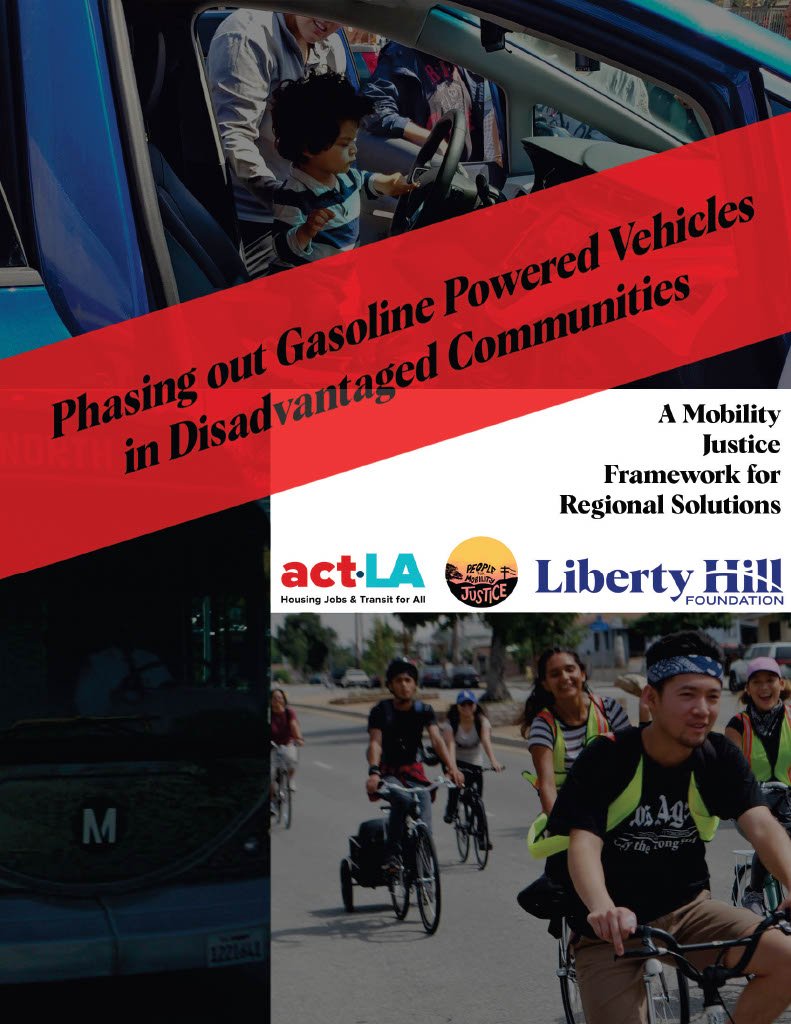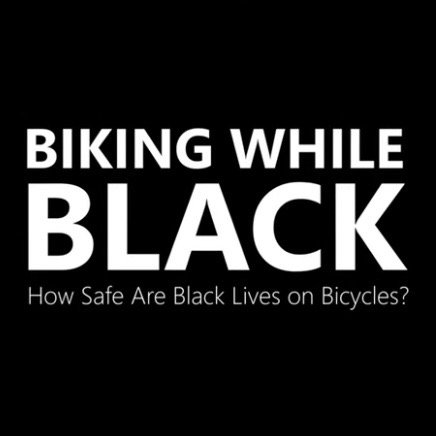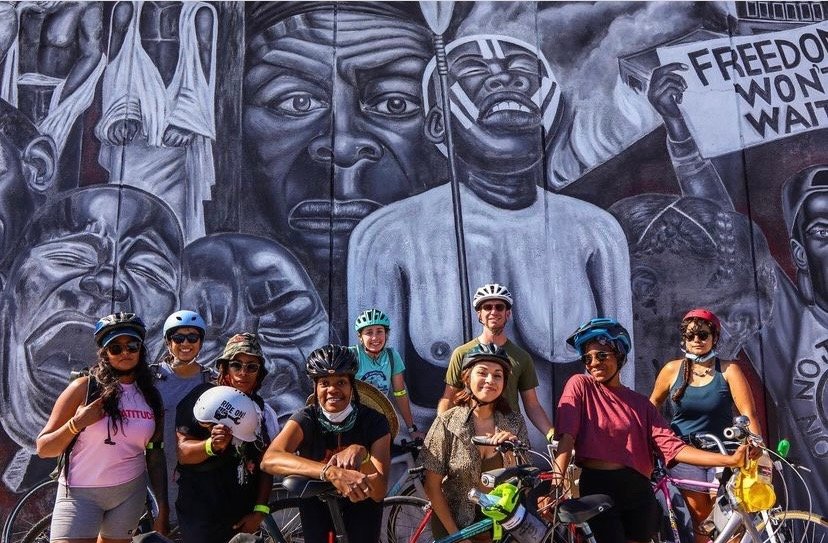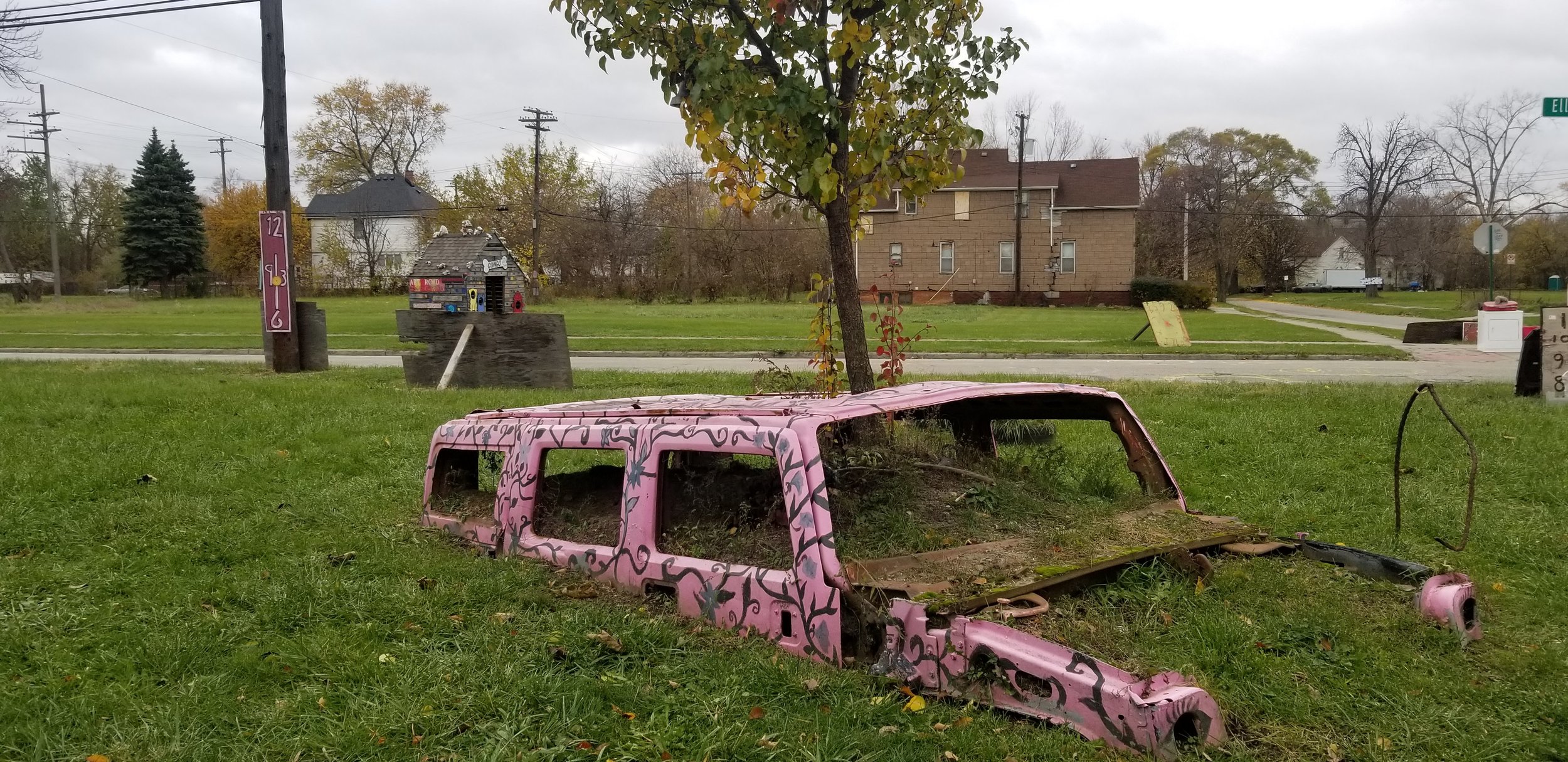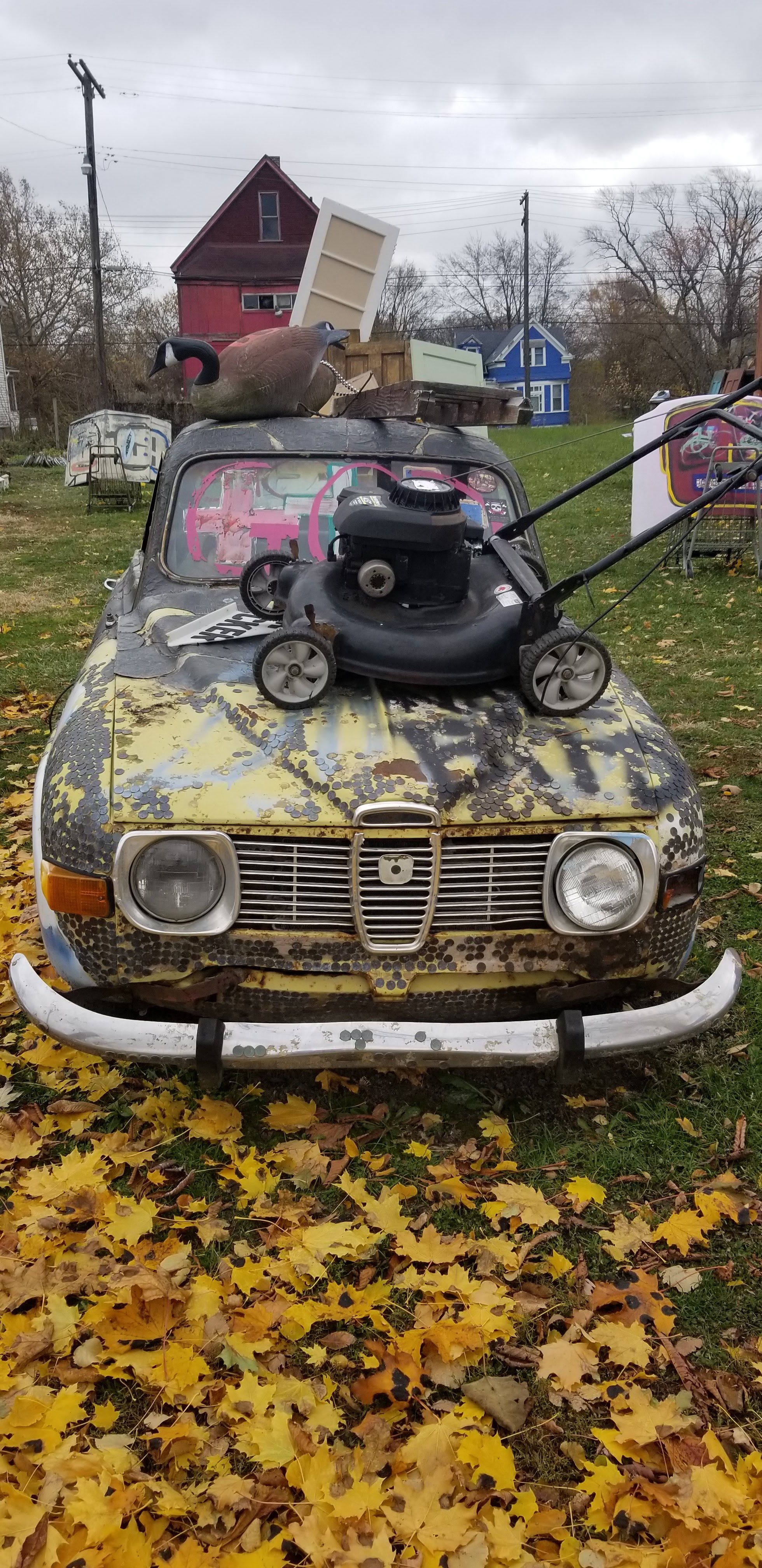In these times of relentless social and political upheaval, we continue to be pulled into waves of fear, tension, and uncertainty. But now, more than ever, we are being called—not just to lean into each other but to lean into rest. Into ease. Into the quiet, healing softness of life.
Rest is not a luxury—it’s medicine.
It’s a radical act of self-preservation, a necessary part of sustaining ourselves and our movements. As we work to rebuild a more just and liberated world, we must also pause, reflect, and recommit to our own well-being as part of the collective struggle.
“Take a nap to receive a Word from your Ancestors. Be subversive. Embrace radical love that is outside the confines of tradition. Be suspicious of everything they taught you. Carry a research notebook. Be curious. Resist. Rest.” (Tricia Hersey, Rest Is Resistance: A Manifesto)
- - - - - - - - - -
PMJ News
Multi-generational Engagement
PMJ at Judy F. Baca Arts Academy, March 2025
In partnership with the Department of Public Health and the Office of Traffic Safety, PMJ continues to promote bicycle and pedestrian safety education in the unincorporated communities of East LA, Florence-Firestone, and Willowbrook/West Rancho Dominguez.
In March, we had the opportunity to present at Brooklyn Ave. School in East LA, where we engaged parents in conversations about local infrastructure challenges and shared key safety practices like increasing visibility on the streets.
We also connected with students at Judy F. Baca Arts Academy in Florence-Firestone to talk about the importance of wearing helmets, how to safely walk, roll, and ride, and their rights as road users. The students participated in thoughtful reflection and collective learning, stepping into their roles as safety leaders for their peers, families, and communities.
PMJ Featured in Bold Journey Magazine!
We’re proud to share that Bold Journey recently featured our very own Programs Director, Lena Williams, spotlighting the passion, resilience, and deep community care they brings to everything they do.
Tap into Lena's journey for powerful insights, heartfelt reflections, and the wisdom that fuels her work in the article here.
Clean Mobility in South Central
Participants at South Central Power Up (SCPU) Bike Skills Training, April 3, 2025
The South Central Power Up (SCPU) e-bike lending library pilot is growing strong, deepening its roots in the community with ongoing trainings and more South Central residents hitting the streets on e-bikes!
Our partners at Los Angeles Cleantech Incubator (LACI) recently shared an exciting milestone—SCPU riders have collectively traveled over 14,617 vehicle miles! That’s thousands of miles powered by clean, sustainable transportation.
Our next training session rolls into April, and we’re excited to keep building momentum.
Currently available in select South Central zip codes, SCPU is all about empowering residents with clean mobility options while promoting environmental justice.
Click here to learn more about South Central Power Up
Interested in joining? Sign up here!
Building Safety & Education in East LA
Residents during a Bike Skills Safety Course at Las Dahlias, March 14, 2025
As part of our partnership with National CORE, LA County Department of Public Works, P.A.T.H., and Hope Through Housing, PMJ continues to build meaningful connections with the residents of Las Dahlias—a 100% affordable housing community in East LA.
Through bi-weekly classes, we’ve been sharing bicycle and pedestrian safety education, creating space for residents to feel empowered, informed, and confident as they move through their neighborhoods.
Vermont Avenue Transit Corridor Organizing
Photo Courtesy of ACT-LA
As part of our work with the ACT-LA Coalition and our commitment to transit justice and bicycle safety, PMJ joined fellow advocates and community organizations at the March 27 Metro Board Meeting to demand the full and timely implementation of Bus Rapid Transit (BRT) infrastructure along Vermont Avenue.
Together, we uplifted the urgent need for greater investment in the Transit Ambassador Program and Homeless and Mental Health Outreach efforts.
PMJ continues to build long-term advocacy by engaging with bike/skate shops, transit riders, cyclists, and community allies who are pushing for expanded, accessible, and equitable BRT networks across Los Angeles.
- - - - - - - - - -
BlueLA EV Carshare Program Dismantled Without Public Input
Los Angeles quietly approved the reallocation of $1.5 million in clean mobility funds—originally intended for South LA communities—while allowing the removal of 40+ EV carshare stations and 200+ chargers from frontline neighborhoods.
PMJ, alongside our coalition partners—Thai Community Development Center, Koreatown Immigrant Workers Alliance (KIWA), and other advocates—is calling for transparency, accountability, and a full audit of LADOT and Blink Mobility.
This is not just about chargers—it's about broken promises and climate injustice.
Join us in demanding a just, community-centered clean mobility future.
Read the full press release (PDF)
- - - - - - - - - -
Upcoming Events
Join us this Friday, April 11 at Franklin D. Roosevelt Park for the 2025 National Public Health Week celebration!
As part of our collaboration with the Department of Public Health and the Office of Traffic Safety, PMJ will be leading a presentation and community walks centered on mobility, safety, and equity in our neighborhoods.
This year’s theme, “It Starts Here,” celebrates the power of community partnerships in building healthier, more connected, and more just systems for all.
Event kicks off at 1PM – and the first 100 attendees will receive a free goody bag! Come walk with us and be part of the movement.
Come celebrate Earth Day with us!
PMJ is excited to be part of the 4th Annual Seeds of Unity Fest: “The Elements of Power” happening this Saturday, April 12th from 11AM–3PM at Harvard Park.
This FREE, family-friendly event uplifts culture, community, and climate justice with live music, art installations, plant giveaways, delicious food, and more!
Stop by our table, connect with us, and join the movement for a just and sustainable future.
RSVP HERE!
Join our Mob J Team!
Interested in PMJ's programs and advocacy work?
At PMJ, we recognize that communities are the true experts of their lived experiences. Our mission is to provide the tools, resources, and knowledge necessary to create safer, more engaged, and well-informed neighborhoods. Together, we mobilize for mobility justice and collective empowerment.
Sign up HERE to get involved!
We are deeply grateful for the community love and support that has sustained our work over the years. Your collaboration fuels the movement for mobility justice in Los Angeles.
Subscribe to our newsletter or donate today to support equitable transportation and sustainable mobility solutions.
In love and solidarity,
The People for Mobility Justice Team
